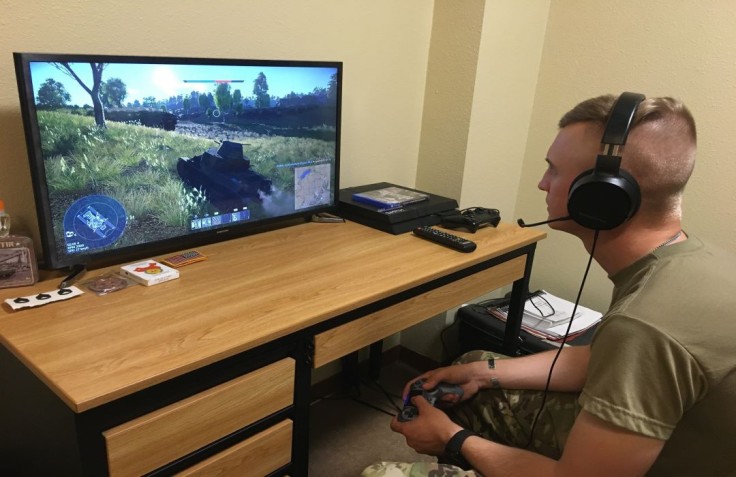Video games are one of the most popular forms of media today for many reasons. Chief among these is the interactivity they provide; players are immersed and involved in the game's world through the characters they play.
This interactivity allows them to impart some things to the gamers playing them, allowing them to learn things they usually wouldn't in a normal setting. However, with the popularity of violent video games, or games that have liberal amounts of violence in them, gamers, especially younger ones, may learn something unintended from them.
This problem begs the question: can video games teach positive behavioral skills and conflict resolution?
Video Games As A Learning Tool
The short answer is yes. Video games are interactive forms of media that allow people to apply themselves to them through the environment it provides; video games give players the freedom to do whatever they wish however they want to, allowing them to put ideas to the test using trial and error.
Think of video games as a school that lets you learn things by yourself, with experience being your teacher and veteran players of the game being your seniors. By the time you turn off your computer, you may have probably learned some things you could apply in your everyday life.
Take the case of then-12-year-old Hans Jorgen Olsen, a World of Warcraft fan that used his knowledge of the game to save himself and his then-10-year-old sister from being severely injured from an encounter with a wild moose. Olsen has the moose focus on him while yelling to imitate an in-game taunt and playing dead when the moose hit him.

Meanwhile, the US army used video games to teach its soldiers to maintain readiness on the field using video games during the lockdowns in the wake of the COVID-19 pandemic. According to troop commander Capt. Mike Manougian, video games helped soldiers to get used to their roles using military-based simulation games in various training events.
Video games also teach other skills. Survival games like the Resident Evil games and Subnautica can teach you how to manage resources and plan, while open-world games like Genshin Impact and Red Dead Redemption 2 can teach you why exploring your environment and surroundings are important.
Meanwhile, multiplayer games, such as MMORPG games like World of Warcraft (WoW) and ARMA 3, are one of the most effective games gamers can use to learn valuable skills. They can teach you the social skills needed to participate and coordinate in a group to take down world bosses.
However, the most beautiful thing that can happen during multiplayer games where gamers can learn positive behavioral skills is when fellow gamers band together through a spontaneous sense of camaraderie.
One great example of this camaraderie and learning and applying positive behavioral skills among players is the Corrupted Blood Incident in WoW. This incident simulated what would happen if a virtual virus infected the player characters on a game server. Some players are quarantined off areas to prevent "healthy" players from contracting the virus, while those who can heal created a makeshift healthcare system so infected players could stave off their virtual death.
These multiplayer games have varying amounts of violence in them, but they are expected. However, doing more than just trash talk and breaking some rules will cause people to band together against the perpetrator in an online version of mob justice.
RPGs where the player's choice will matter and online multiplayer games can teach people how to resolve conflicts without resulting in violence, though the former method could require numerous attempts to get it right.
Gamers could learn and apply them through resolving confrontations between clan or guild members, which is the best possible option for applying them in real life other than doing it in the real world.
A Double-Edged Sword

While video games can teach people practical, social, and positive behavioral skills and conflict resolution, the same is also true with negative and often harmful behavior and skills. For instance, an 11-year-old boy managed to drive his family's car using the driving skills he learned from playing Grand Theft Auto and led police on a high-speed chase that, fortunately, didn't end in tragedy.
A Washington Post report citing a statement from Ontario police officer Sgt. Kerry Schmidt said the 11-year-old wanted to see what it was like to drive a car a la GTA after playing the game. Normally, a minor couldn't buy the game due to its ESRB rating of Mature 17+, meaning that only people 17 years old and above could purchase and play the game.
As such, Schmidt added that GTA is "is not the way to learn how to drive, so please don't try taking your parents' car if you just got all excited by playing 'Grand Theft.'"
While lawmakers are pushing down hard on violent video games due to the many school shooting suspects being avid fans of them, the Dana Foundation and Discover Magazine citing a longitudinal study published in "Psychology of Popular Media Culture" stated that there is no firm, irrefutable evidence that playing violent video games leads to real-life violence or even aggressive behavior in kids and teens.
However, A meta-analysis from scientists at the University of Innsbruck in Austria found that violent video games do boost aggression in players.
Conclusion
Video games, even violent ones, are capable of teaching gamers and people practical, social, and positive behavioral skills and conflict resolution. However, it could also do the opposite. Oftentimes, the negative skills and traits video games could teach gamers are countered by a proper upbringing, which allows people to discern the good and the bad by themselves and use the good to better their character.
Young gamers can benefit much from video games, but parental supervision and guidance are needed to help them learn what is right and wrong. After all, a good upbringing goes a long way for an impressionable and curious child.
Related Article : Console Gaming - Here's Why Digital-Only Variants Are More Popular









